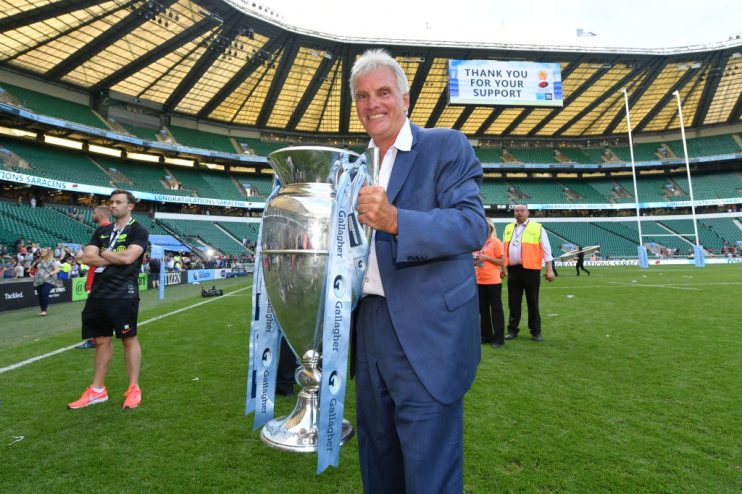Opinion: Nigel Wray deserves credit after building Saracens’ dynasty

Empires fall and dynasties cease, but one thing remains when you’ve done something right or simply left your mark: legacy. Nigel Wray, the outgoing majority stakeholder of Saracens, has ensured that; and rugby, on balance, is better for it.
Saracens announced at the weekend that, 26 years after he began backing the north London club, Wray was stepping back and taking on a minority, silent stakeholder role. In his place a consortium of investors from rugby and beyond are set to take the reins.
But as the City grandee departs the spotlight he takes with him the knowledge that his decisions, good and bad, have propelled professional rugby forward.
“I have given my heart and soul to the club for more than two decades, having chaired Saracens since the first days of professionalism,” said Wray, now in his seventies.
“Sadly, I’m not getting any younger and I have always wanted to make sure that Saracens is in very safe hands for many future generations. To show our continued enthusiasm for the future of Saracens I will be retaining a significant minority shareholding albeit a passive one.”
Wray was at the epicentre of Saracens’ rise to domestic glory, their spell as European giants and their undoing by Premiership Rugby’s audit office for salary cap breaches.
He arrived as the Premiership became professional and helped transform it into a truly global league, luring legends such as Michael Lynagh and Francois Pienaar, the latter a member of the new consortium, to Saracens.
Saracens’ sustained success showed that the Premiership’s best could take on the cream of French and Irish rugby and conquer Europe. Built around a spine of homegrown players, such as Owen Farrell and Jamie George, the club has also done more than any other to produce mainstays of the England set-up.
As with many dynasties, there has been some scandal. Found guilty of finding ways around the regulated salary cap and attempting to conceal it, Wray’s Saracens were subjected to a very public ordeal which resulted in their relegation from the top flight last year; sentenced to time down in the depths, as in the gladiatorial games of millennia past.
There was no hiding from the chants and jibes from fans of rival clubs across the Premiership’s terraces. But Wray could have begun talking about other clubs suspected of breaching the cap in years gone by, yet he didn’t. It speaks volumes of his willingness to protect the league, rightly or wrongly.
“I am looking forward to becoming just a fan again and supporting the club I love whilst focusing more of my time on the pioneering work of our amazing Foundation and supporting the build out of the Saracens school programme,” said Wray, who stepped down as chairman in 2020. Lucy Wray, his daughter, is to remain chief executive.
“It is great that he is still a shareholder. Everyone involved in Sarries would want him to be,” said former British and Irish Lions coach Sir Ian McGeechan on Sunday. “When you think of Sarries, you think of Nigel Wray. That is a tremendous legacy to have.”
Legacy means to leave something behind to the benefit of others. Nigel Wray can enjoy his new role at the club he nurtured knowing he’s not only left a legacy for his club but for rugby as a whole. And rugby, in turn, should look respectfully on the dynasty he presided over.